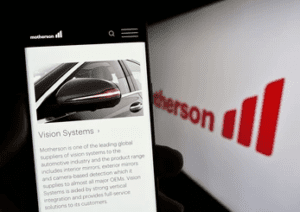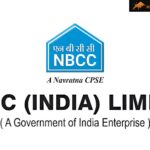
Samvardhana Motherson International’s Q2 FY25 Net Profit Surges by 222.5%
Contents
- 1 Motherson Share Price
- 1.1 Samvardhana Motherson International’s Q2 FY25 Net Profit Surges by 222.5%
- 1.1.1 Robust Revenue Growth in Q2 FY25
- 1.1.2 Strong Financial Performance in H1 FY25
- 1.1.3 Strategic Outlook and Market Confidence
- 1.1.4 Conclusion
- 1.1.5 FAQs:
- 1.1.5.1 1.What was SAMIL’s net profit for Q2 FY25?
- 1.1.5.2 2.How did SAMIL’s revenue perform in Q2 FY25?
- 1.1.5.3 3.What factors contributed to SAMIL’s profit growth?
- 1.1.5.4 4.How did SAMIL’s Q2 FY25 results compare to the June 2024 quarter?
- 1.1.5.5 5.What was SAMIL’s revenue for the first half of FY25?
- 1.1.5.6 6.Who is the Chairman of SAMIL?
- 1.1.5.7 7.What was the growth in SAMIL’s non-automotive businesses?
- 1.1.5.8 8.What is the value of SAMIL’s automotive booked business?
- 1.1.5.9 9.What are SAMIL’s strategic goals?
- 1.1.5.10 10.How did SAMIL manage its growth amid uncertain conditions?
- 1.2 Motherson Share Price
- 1.3 Comparing Costs: ETFs vs. Mutual Funds – Which Is More Cost-Effective?
- 1.1 Samvardhana Motherson International’s Q2 FY25 Net Profit Surges by 222.5%
Samvardhana Motherson International’s Q2 FY25 Net Profit Surges by 222.5%
Samvardhana Motherson International Ltd (SAMIL), formerly known as Motherson Sumi Systems, has announced impressive financial results for the quarter ending September 2024 (Q2 FY25). The company reported a remarkable 222.5% rise in consolidated net profit, reaching ₹948.81 crore, a substantial leap from ₹294.15 crore in the same quarter last year. However, on a sequential basis, the net profit marked a 13.5% decline from ₹1,097.18 crore recorded in the June 2024 quarter.


Robust Revenue Growth in Q2 FY25
In Q2 FY25, SAMIL’s consolidated revenue from operations increased by over 18%, reaching ₹27,811.86 crore, up from ₹23,527.46 crore in the same quarter last year. This growth underscores the company’s strength in both automotive and non-automotive sectors. However, on a quarter-on-quarter basis, revenue saw a marginal dip of 3.6% compared to ₹28,867.96 crore in the preceding quarter.
Strong Financial Performance in H1 FY25
For the first half of FY25 (H1 FY25), SAMIL reported a multifold increase in net profit, which grew by over 117% to ₹2,045.99 crore, compared to ₹942.27 crore in the same period last year. Total income for H1 FY25 surged to ₹57,009.9 crore, a 23.6% increase from ₹46,108.95 crore in H1 FY24, reflecting robust operational and market expansion.


Strategic Outlook and Market Confidence
Commenting on the results, Chairman Mr. Vivek Chaand Sehgal highlighted the company’s adaptability and prudent management of leverage, ensuring sustainable growth amid global uncertainties. “These results highlight our strength and adaptability in an uncertain business environment,” said Sehgal. He noted that SAMIL’s automotive booked business has reached approximately USD 88 billion, consistently growing due to customer trust and commitment. Additionally, SAMIL’s non-automotive sectors have also shown stable growth, contributing significantly to the company’s diversified portfolio and reinforcing its resilience for future expansion.


Conclusion
Samvardhana Motherson International’s Q2 FY25 results reflect the company’s strategic agility and robust financial management in navigating market challenges. The substantial profit growth, bolstered by diverse sector performance, underscores SAMIL’s well-positioned status for sustainable success in the global market.
FAQs:
1.What was SAMIL’s net profit for Q2 FY25?
A. SAMIL reported a consolidated net profit of ₹948.81 crore for Q2 FY25, a 222.5% increase year-over-year.
2.How did SAMIL’s revenue perform in Q2 FY25?
A. Revenue rose over 18% year-over-year to ₹27,811.86 crore in Q2 FY25.
3.What factors contributed to SAMIL’s profit growth?
A. Profit growth was driven by increased demand across automotive and non-automotive segments and effective management of leverage.
4.How did SAMIL’s Q2 FY25 results compare to the June 2024 quarter?
A. Net profit declined 13.5% sequentially, while revenue decreased by 3.6% from the June quarter.
5.What was SAMIL’s revenue for the first half of FY25?
A. For H1 FY25, SAMIL’s total income surged to ₹57,009.9 crore, up by 23.6% from H1 FY24.
6.Who is the Chairman of SAMIL?
A. Mr. Vivek Chaand Sehgal serves as the Chairman of Samvardhana Motherson International.
7.What was the growth in SAMIL’s non-automotive businesses?
A. SAMIL’s non-automotive sectors showed consistent growth, contributing to overall stability and diversification.
8.What is the value of SAMIL’s automotive booked business?
A. SAMIL’s automotive booked business stands at approximately USD 88 billion, reflecting strong client trust.
9.What are SAMIL’s strategic goals?
A. SAMIL aims for sustainable growth with a focus on maintaining a balanced portfolio across automotive and non-automotive sectors.
10.How did SAMIL manage its growth amid uncertain conditions?
A. SAMIL’s prudent leverage management and diversified operations contributed to its resilient growth amid global uncertainties.
Comparing Costs: ETFs vs. Mutual Funds – Which Is More Cost-Effective?





















1 comment